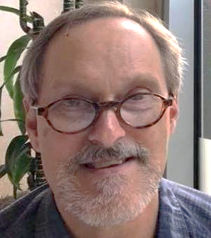Asilomar 2020 34th Annual Asilomar Conference
The Weekend Of February 14 - 17, 2020
Where is Asilomar? The beautiful Asilomar Conference Grounds was designed in the Arts & Crafts style by architect Julia Morgan and is located near Monterey, California. We have held our conference there for the past 33 years. For more see the Wiki
Sign Up For The Upcoming AsilomarIf western culture is shown to be rich it is because… It has tried to dissolve harmful simplifications through inquiry and the critical mind.” – Umberto Eco
We had a slate of extraordinary speakers representing a broad range of disciplines and pursuits. As always, we look forward not only to sharing a mental workout but also to the privilege of renewing old friendships and beginning new ones – all in a location of exceptional peace and beauty. Thank you for joining us in what was a lively and exhilarating exchange.
Friday, 7:15 p.m. Welcome and Introductions
Deirdre Frontczak, Ph.D., Asilomar Chair
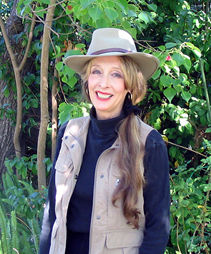 Friday, 7:30 pm.
Friday, 7:30 pm.
Diane Dreher, PBK, Ph.D. (English), Santa Clara University
The Secret Behind Shakespeare’s Greatest Tragedies
William Shakespeare wrote all his major tragedies between 1602 and 1607: Hamlet (1602), Othello (1604), King Lear (1605), Macbeth (1606) and Antony and Cleopatra (1607). Scholars have long wondered about the mystery behind these works: what had inspired his greatest tragedies? Psychological research tells us that writing about emotional trauma can be powerfully therapeutic. My research also shows that Shakespeare’s personal losses plunged him into a prolonged period of grieving. While writing Hamlet, he began a therapeutic process that filled his tragedies with unprecedented emotional depth.
Drawing insights from Shakespeare’s life, current psychological research, and key scenes from Hamlet, we will explore together how this therapeutic process contributed to the play’s enduring appeal.
Diane Dreher is a Professor of English at Santa Clara University. She did graduate work at the Shakespeare Institute in Stratford-upon-Avon and received a Ph.D. in English from UCLA, an M.A. in Counseling from Santa Clara University, and a B.A. in English from UC Riverside. Her research agenda includes works on literature and spirituality, Eastern philosophy, leadership, and positive psychology with publications ranging from the bestselling Tao of Inner Peace to scholarly books and articles. In addition to her academic work, she is a writing and positive psychology coach, credentialed by the International Coach Federation.
 Saturday Morning, 9:30 a.m.
Saturday Morning, 9:30 a.m.
William J. Clancey, PBK, Ph.D. (Computer Science), Stanford / I.H.M.C.
The Okeanos Explorer: Robotically mediated field science beneath the sea and the art of travel
Using robotic systems operated from NOAA’s ship, the Okeanos Explorer, oceanographers are now able to explore the depths of Earth’s oceans without leaving their homes. Unlike missions on Mars, undersea robots can be tele-operated, and an international remote science team participates as the daily investigation unfolds. I present my observations from an ethnographic study conducted onboard during the American Samoa Expedition. The technology provides a multidisciplinary “collaboration system,” in which the ship’s officers and crew, robot engineers, oceanographers, and educators coordinate their activities during an expedition. The combination of video, phone, and social media provides great flexibility and a voice for everyone, including students, in how the investigation proceeds. Throughout, science, technology, and art are interwoven, as the historic, poetic aspect of discovery is ever-present; and as in the first voyages of the South Pacific, exotic images inspire us with the romance of exploration.
Dr. William J. Clancey is a computer scientist whose research relates cognitive and social science in the study of work practices and the design of agent systems. He received a PhD in Computer Science at Stanford University and Mathematical Sciences BA at Rice University (ΦBK, 1974). He has developed artificial intelligence applications for medicine, education, finance, robotics, and spaceflight systems. At the Institute for Research on Learning he co-developed ethnographic methods for modeling work systems. At NASA Ames Research Center as Chief Scientist of Human-Centered Computing, Intelligent Systems Division (1998-2013), his team automated file management between Mission Control and the International Space Station, receiving Johnson Space Center’s Exceptional Software Award. He is a Fellow of the American College of Medical Informatics, Association for Psychological Science, Association for Advancement of AI, and National Academy of Inventors. His book Working on Mars: Voyages of Scientific Discovery with the Mars Exploration Rovers received the AIAA 2014 Gardner-Lasser Aerospace History Literature Award.
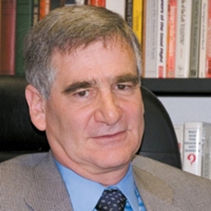 Saturday Afternoon, 1:30 p.m.
Saturday Afternoon, 1:30 p.m.
Henry Reichman, Ph.D. (History), California State University, East Bay
The Future of Academic Freedom
The American concept of academic freedom was first fully articulated in 1915 by the founders of the American Association of University Professors (AAUP) in the context of the expanding economic and social inequality of corporate power associated with the Gilded Age. Conditions today are eerily similar. In 1915, only a handful of prominent full professors at elite institutions held an appointment carrying indefinite tenure, which the AAUP’s founders considered the strongest defense of academic freedom. But today, even if most colleges and universities provide tenure protections, they provide them for an ever-shrinking segment of the faculty. Add to this growing external threats from online harassers, external funders, and meddling governing boards and legislators, academic freedom may be more endangered today than at any time in the near future.
Since 2012 Henry Reichman has chaired the AAUP's Committee on Academic Freedom and Tenure. An historian of Russia and the Soviet Union, he is Professor Emeritus of History at California State University, East Bay, where he taught for 25 years. At CSUEB he won the outstanding professor and faculty service awards and served three terms as chair of the academic senate, on the executive committee of the CSU system academic senate, and for nine years on the California Faculty Association's collective bargaining team. His book, The Future of Academic Freedom, was published in April 2019 by Johns Hopkins University Press. It explores both current challenges to academic freedom and outlines why its defense is so important in a democratic society.
 Saturday Evening, 7:00 p.m.
Saturday Evening, 7:00 p.m.
Joe Lurie
M.A.(Communication), Ex. Director, U.C. Berkeley International House
Culture Clash in the Era of Globalization
Addressing the implications of the West African proverb, "The Stranger Sees Only What He Knows," the talk will explore the nature and sources of bias and misunderstanding in a hyper-connecting, often polarizing world. In a time of unprecedented contacts across cultures, author Joe Lurie will examine cultural disconnects with refugees and other immigrants and study the nature and implications of culture clash in the news of the day: in the worlds of diplomacy, politics, business, religion, health care and technology. In the process, we'll come to see and hear that more is meant than meets the eye or the ear.
Author of the award winning Perception and Deception, A Mind-Opening Journey Across Cultures, and former Peace Corps Volunteer, Joe Lurie is Executive Director Emeritus of the University of California Berkeley's International House, a dynamic multi-national residential program center serving the campus, local community, and 1,000 residents from 75 plus countries annually. Its mission is to foster intercultural respect and understanding for the promotion of a more peaceful world. He served in this role for two decades and subsequently has been an active teacher and intercultural trainer at UC Berkeley and consultant on cross-cultural communications.. His work has been featured at the Commonwealth Club and on NPR, PBS and in Harper's Magazine and the Mercury News.
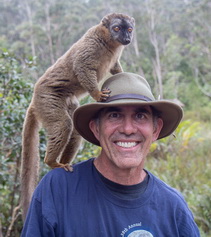 Sunday, 10 a.m.
Sunday, 10 a.m.
Robert Siegel, Ph.D. (Biology); Stanford
The Secret Life of Viruses
Are you intrigued, terrified, or confused by viruses? Viruses occupy a liminal zone between the living and the inanimate. They are the most ubiquitous replicators on earth parasitizing every domain of life. Viruses include the deadliest human pathogens and they continue to be a significant cause of mortality and suffering despite our rapid advances in scientific understanding.
This lecture will pose a series of questions to explore the nature of viruses. What is a virus? Are viruses alive? How are viruses different from (other) living things? How are they similar? What do all viruses have in common? What distinguishes one group of viruses from another? Using many examples, we will shed light on these fascinating biological entities. Virology research has provided many of our greatest medical triumphs. Additionally, our understanding of viruses provides insight into the nature and origin of all life.
Robert Siegel, 2019 recipient of the PBKNCA Teaching Excellence Award, is a Professor at Stanford with appointments in the Department of Microbiology and Immunology, The Program in Human Biology, the Center for African Studies, the Woods Institute for the Environment, and the Masters of Liberal Arts Program. His courses focus on virology and infectious disease, genetics and molecular biology, global health and development, photography, ecology, Darwin and evolution, and Stanford itself. He has recently completed book chapters on viral classification, vaccines to prevent viral cancers, and prions.
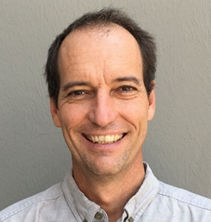 Sunday, 1:30 p.m.
Sunday, 1:30 p.m.
Grant Ballard, Ph. D. (Ecology); Point Blue Conservation
“Climate-smart conservation from Antarctica to California”
The past year has been grim for conservation supporters. United Nations reports warned of the dangers we face if the planet exceeds 1.5 degrees Celsius of warming roughly one million plant and animal species are threatened with extinction, some within decades, elevating the urgency of significant action before 2030. In October, Science published an analysis showing that North America has lost nearly 3 billion birds since 1970 – although targeted conservation efforts have proven successful.
At the heart of these stories of threat and recovery lies a unifying thread: data. At Point Blue we curate billions of ecological observations, some spanning more than forty years. The perspective they afford helps Point Blue increase the pace and scale of “climate-smart” conservation. We are using strategies that specifically address climate change, while promoting nature-based solutions to benefit wildlife, human communities, and the ecosystems they depend.This talk will describe the principles of climate-smart conservation illustrated with specific success stories from decades of conservation science in California and Antarctica.
Grant leads several projects investigating and communicating the effects of landscape-scale environmental stressors on ecosystems and human stakeholders in western North America and the Southern Ocean. Managing a team of 160 scientists, he is responsible for shaping and growing Point Blue's multi-investigator scientific research and conservation programs towards the vision that healthy ecosystems will continue to sustain thriving wildlife and human communities in California and beyond, on land and at sea, for decades to come.
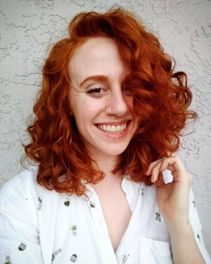 Sunday, 7:30 p.m.
Sunday, 7:30 p.m.
Ryane Logsdon, PBK, Ph.D. Cand. (Animal Behavior)
Robots, burlap, and habitat-mapping: Using technology to study animal communication
Animal communication has led to the evolution of some of the most incredible and diverse displays and behaviors in the natural world. Successful communication between animals is often critical to their continued survival; understanding the dynamic interactions between individuals - and the external factors that influence these dynamics - is important to establishing effective conservation and management strategies. However, conducting this research in the wild is often logicistically challenging – the mere presence of a human can drastically alter an animal’s natural behaviors!
Logsdon’s doctoral research focuses on courtship behaviors in a declining species of bird: the greater sage-grouse. Through her dissertation, Logsdon utilizes a variety of tools – including biologically-realistic robot sage-grouse – that enable her to investigate natural courtship behaviors in the wild. This presentation will discuss how her research utilizes both high- and low-tech solutions to further understand the environmental influences on animal communication.
Ryane Logsdon is a Ph.D. candidate in the Animal Behavior Graduate Group (ABGG) at the University of California, Davis. After receiving her B.S. in Ecology and Evolutionary Biology, she held a series of research positions – studying lizard courtship, vampire bat social calls, and cognition in American crows – investigating various aspects of animal behavior. Current research explores the interplay between habitat structure, social interactions, and courtship behavior using the greater sage-grouse as a model system. Ryane is an NSF Graduate Research Fellow, received the PBKNCA graduate scholarship, has published in top-tier journals, and has presented her research at international conferences.
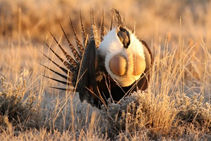 Centrocercus urophasianus: A male greater sage-grouse mid-display. Photo by Ryane Logsdon.
Centrocercus urophasianus: A male greater sage-grouse mid-display. Photo by Ryane Logsdon.
James Richardson, PBK, M.Div. (Theology), Dean, Trinity Cathedral, Sacramento
The Abolitionist’s Journal: The Life and Times of an American Anti-slavery Family
Methodist pastor George Richardson (1824-1911) left behind a 334-page journal richly detailing how he and his family used their home on the Underground Railroad to assist escaped slaves; his service as the white chaplain to an African American Union regiment in the Civil War; and then after the war, his family’s struggle to found a college for the formerly enslaved in Texas. The college was burned down by the Ku Klux Klan, chased out by the city of Dallas, and then reestablished in Austin where it thrives today as Huston-Tillotson University. His journal has prompted a decade-long search through family archives -- yet raises questions about how a family’s deep commitment to emancipation faded and disappeared in succeeding generations.
James Richardson is a former senior writer with The Sacramento Bee and the author of several books on California politics, including an acclaimed biography of the politician Willie Brown, published by the University of California Press. His newest book project heads into a new direction, exploring his family roots in the anti-slavery abolitionist movement of the 19th century. Richardson is a Phi Beta Kappa graduate of UCLA and has a Master of Divinity degree from the Church Divinity School of the Pacific in Berkeley. He is an Episcopal priest and is currently the interim Dean of Trinity Episcopal Cathedral in Sacramento.
* * *
Thank you for joining us at the annual PBKNCA Asilomar Conference.
In the spirit of a “love of learning as the guide of life”, we hope to welcome you back next year, and to future events. Safe travels!
There is a $125 registration fee per person which goes mainly to our Scholarship fund. See the top of the page to register. Lodging and meals are charged separately by Asilomar. Please wait for instructions, which will be sent to you after you register. The per person total below is based on a 3-night stay beginning on Friday, February 14th and includes 3 meals per day and ALL applicable fees & taxes. Meals inclusive begins with dinner on arrival day and ends with lunch on departure day.
Double Occupancy: $1290.10 or $645.05 per person
If you have questions on the program, please contact dfrontczak@scu.edu. For registration matters, please contact Barry Haskell at bghaskell@comcast.net..
Deirdre Frontczak, Asilomar Chair

